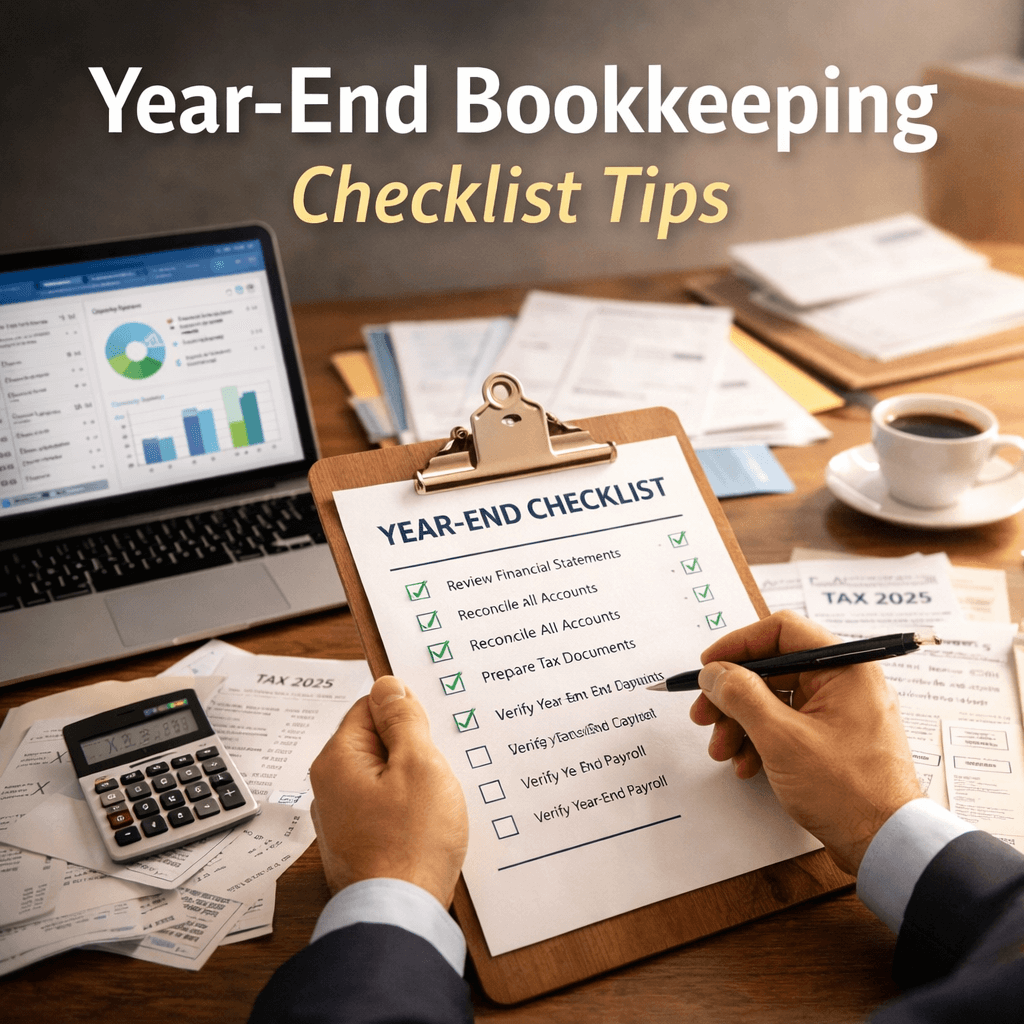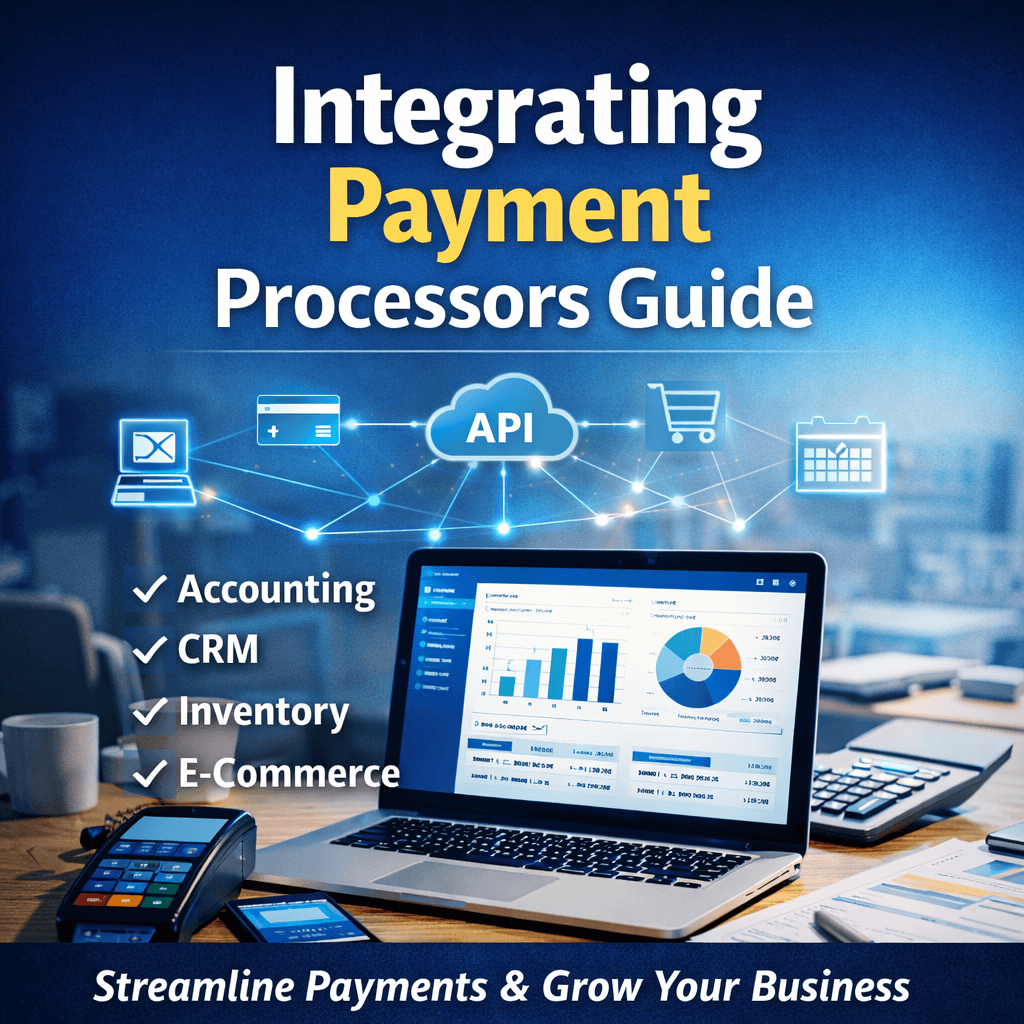Financial Reporting Best Practices for SMBs:
Boost Accuracy
Financial reporting best practices for SMBs start with implementing standardized processes, automated controls, and clear workflows that transform chaos into clarity—without requiring enterprise-level budgets or dedicated finance teams.
You’re drowning in spreadsheets at 11 PM, trying to reconcile numbers that should have balanced hours ago. Sound familiar? I’ve been there. When I started Complete Controller, I watched brilliant entrepreneurs lose credibility with investors because of preventable reporting errors. They weren’t careless—they were using systems designed for a different era. Today, I’m sharing the exact practices that helped our clients cut their month-end close from 10 days to 3, eliminate 90% of reconciliation errors, and actually trust their numbers. These aren’t theoretical concepts; they’re battle-tested strategies from two decades in the trenches.

What are financial reporting best practices for SMBs and how do they boost accuracy?
- Best practices include standardized templates, automated workflows, consistent reconciliation schedules, clear approval hierarchies, and integrated systems that eliminate manual data entry.
- Standardized templates ensure everyone uses the same format and definitions, reducing confusion and creating natural checkpoints for error detection.
- Automated workflows enforce the right sequence of tasks, preventing skipped steps that lead to incomplete or inaccurate reports.
- Regular reconciliation schedules catch discrepancies early, before they compound into material errors or compliance issues.
- Integrated systems eliminate the copy-paste nightmare between spreadsheets, creating a single source of truth that updates in real-time.
The Foundation: Building Your Chart of Accounts Right
Your chart of accounts is the skeleton of every financial report you’ll ever produce. Get it wrong, and you’ll fight that mistake forever. A properly structured chart organizes into five main categories—Assets, Liabilities, Equity, Revenue, and Expenses—creating natural rollups for financial statements.
Think of your revenue accounts like filing cabinets. You want enough drawers to find what you need quickly (product lines, service types, locations) but not so many that filing becomes a full-time job. The same logic applies to expense accounts: track what matters for decision-making without creating analysis paralysis.
Daily habits that prevent monthly disasters
Here’s what separates smooth operators from scrambled closers: consistency. Record transactions as they happen, not when you remember. Reconcile cash deposits before you leave for the day. Log everything, even if it seems trivial—that $50 software subscription you forgot about becomes a $600 variance by year-end.
Weekly bank reconciliations catch fraud faster than any software. I’ve seen businesses discover unauthorized charges six months after the fact because they only reconciled quarterly. By then, recovering funds becomes nearly impossible. Monthly reviews should include preliminary statements, budget variance analysis, and a deep dive into any expense category that looks off. These rhythms create muscle memory that makes accuracy automatic.
Standardization: Your Secret Weapon Against Chaos
Manual processes aren’t just slow—they’re expensive. Recent data shows manual reconciliation for 100 accounts costs about $7,464 monthly in labor. Automation cuts that to $1,464, saving nearly $6,000 per month. But the real win? Machines don’t transpose numbers or skip steps when they’re tired.
Standardized templates force consistency across your organization. When everyone uses the same variance analysis format, the same journal entry template, the same month-end checklist, you eliminate interpretation errors. More importantly, you create natural quality control points where anomalies become obvious.
Setting your reporting rhythm
Establish iron-clad intervals: daily transaction recording, weekly account reconciliation, monthly financial compilation. This predictability does two things. First, it catches errors while they’re still small. Second, it builds stakeholder confidence—your team knows the books are always current, not just “mostly accurate” or “pretty close.”
According to 2025 benchmarking data, only 18% of finance teams close their books in 1-3 days, while half take longer than five days. The difference? The fast closers have eliminated manual handoffs and standardized their workflows. They’re not working harder; they’re working systematically.
Internal Controls: Your Insurance Policy Against Disaster
Internal controls over financial reporting sound like corporate jargon, but they’re really just smart safeguards. Think of them as guardrails that keep honest mistakes from becoming financial disasters.
How to improve financial reporting quality with routine bank reconciliations isn’t optional—it’s foundational. Every unreconciled discrepancy is a potential fraud hiding in plain sight. One client discovered $40,000 in duplicate vendor payments only because they implemented daily reconciliation. Their previous quarterly process would have missed it entirely.
Building fraud-resistant systems
Access controls seem basic until someone changes a vendor’s bank account without approval. Create clear audit trails showing who did what, when, and why. Implement approval thresholds—maybe the accounting clerk can approve $500, but anything over $5,000 needs manager sign-off. Internal controls over financial reporting to reduce fraud risk aren’t about mistrust; they’re about protecting everyone, including your honest employees who don’t want to be suspects when something goes wrong.
Multi-level approvals create accountability chains. Department managers review their numbers before submission. Finance validates the consolidated figures. Leadership signs off on final statements. Each layer catches different types of errors—managers spot operational anomalies, finance catches technical accounting issues, leadership identifies strategic misalignments.
Choosing Your Framework: GAAP vs. FRF for SMEs
Not every SMB needs full GAAP compliance, despite what your CPA might imply. The Financial reporting standards: FRF for SMEs (AICPA) offers a practical alternative that balances credibility with simplicity.
FRF for SMEs strips away GAAP’s complexity while maintaining professional standards. It uses historical cost instead of fair value estimates, requires basic disclosures instead of novels, and lets management choose accounting policies that actually serve users’ needs. For many SMBs, it’s the sweet spot between shoe-box accounting and corporate overkill.
When GAAP is non-negotiable (and when it’s not)
If your bank, investors, or board explicitly require GAAP statements, discussion over. But if your stakeholders accept non-GAAP financials for loans and decision-making, FRF for SMEs can save thousands in accounting fees while maintaining credibility. Some companies also consider IFRS reporting for SMEs if they have international operations or investors.
The framework you choose shapes every downstream process, so decide early. Switching frameworks mid-year creates reconciliation nightmares and confused stakeholders.
Still closing the books the hard way? Let Complete Controller simplify your reporting.
Technology: From Excel Hell to Real-Time Intelligence
Let’s address the elephant: 94% of finance teams still use Excel for month-end close, and half blame it for their slow close. Excel isn’t evil, but using it as your primary accounting system in 2025 is like using a flip phone to run your business.
According to the 2025 State of Financial Automation Report, 85% of SMBs are enthusiastic about AI and automation tools, with 73% already seeing measurable impact. These aren’t bleeding-edge startups—they’re practical business owners who got tired of working weekends.
Breaking down data silos
Manual data feeds between your CRM, payroll, and accounting systems create error opportunities at every handoff. Modern platforms with built-in integration eliminate the copy-paste dance. When your systems talk to each other automatically, reconciliation happens continuously, not monthly.
Real-time dashboards transform how you spot problems. Instead of discovering issues during month-end close, you see anomalies as they happen. AI-powered systems flag unusual transactions—that vendor payment that’s 300% higher than normal, that customer invoice with the wrong tax rate—before they pollute your financial statements.
Making numbers make sense
Data visualization isn’t about pretty charts; it’s about clarity. Your CEO doesn’t want to hunt through rows of numbers to understand margin trends. Visual dashboards transform raw data into insights: margin compression becomes obvious when you see the trend line dropping, cash flow concerns jump out when the chart turns red.

Implementation: Your 90-Day Transformation Roadmap
Theory without implementation is just expensive talk. Here’s how to transform your financial reporting without disrupting operations.
Weeks 1-2: Document Your Current Reality
Map every step of your existing process. Time how long each task takes. Note where errors typically occur. Document which systems talk to each other and which require manual intervention. Be brutally honest—this baseline determines your improvement metrics.
Weeks 3-4: Design Your Target State
Based on identified gaps, sketch your ideal process. Standardize your chart of accounts if it’s gotten messy. Create templates for step-by-step financial close process best practices. Define who approves what, when reconciliations happen, and how exceptions get handled.
Weeks 5-8: Build and Train
If implementing new software, run parallel with your old system. If improving existing processes, implement changes incrementally. Train everyone involved—not just finance. Department managers need to understand why their expense coding matters. Create job aids and quick reference guides.
Weeks 9-12: Refine and Lock In
Run your new process through a full month-end cycle. Document what broke and fix it. Gather feedback from users and stakeholders. Once stable, officially retire old processes. Resistance drops when people see the new way actually works better.
Real-World Results: Proof These Practices Work
A multinational electrical engineering company faced a crisis when their U.S. division needed to align with new European parent company reporting timelines. Their 10+ day close made compliance impossible. Through systematic process mapping and automation, they identified duplicate work, manual bottlenecks, and poor task sequencing.
The result? Close time dropped to 3 days—a 70% improvement. But the real win was what finance could do with the freed time: variance analysis, forecasting, and strategic planning instead of data entry. This isn’t a unicorn story—it’s what happens when you apply these practices systematically.
Beyond Compliance: Management Reporting That Drives Decisions
Statutory reports keep you legal. Management reports make you profitable. Effective management reporting answers questions like: Which customers are actually profitable after serving costs? Is our cash conversion cycle improving or deteriorating? Are we tracking to budget, and if not, why?
Work with department heads to identify their key metrics. Manufacturing might track scrap rates and inventory turns. Sales wants customer acquisition costs and pipeline velocity. Finance monitors cash flow, gross margins, and days sales outstanding. Build dashboards that update automatically, not monthly fire drills.
Conclusion
Financial reporting best practices aren’t about perfection—they’re about progress. Every small improvement compounds: standardized templates save minutes that become hours, automated workflows catch errors before they multiply, integrated systems eliminate entire categories of mistakes.
Over two decades, I’ve watched SMBs transform from spreadsheet chaos to reporting confidence. The successful ones don’t try to fix everything at once. They pick one pain point—maybe it’s bank reconciliation or month-end close time—and fix it properly. Then they build on that success.
If your financial reporting feels like a monthly crisis instead of a routine process, start small. Pick one practice from this article and implement it this week. Maybe it’s creating your first month-end checklist or setting up weekly reconciliation reminders. Build momentum from there.
Ready to accelerate your financial transformation? Visit Complete Controller to discover how cloud-based bookkeeping services can implement these practices for you—letting your team focus on growth while we handle the complexity.

Frequently Asked Questions About Financial Reporting Best Practices
What’s the difference between financial reporting and management reporting?
Financial reporting creates formal statements (balance sheet, income statement) for external stakeholders like banks and investors. Management reporting produces internal dashboards and analyses that help you run the business—think customer profitability, department performance, and cash flow projections.
How much should SMBs budget for financial reporting improvements?
Initial setup costs vary wildly—from $5,000 for process improvements using existing systems to $50,000+ for full automation implementation. The ROI typically appears within 3-6 months through labor savings and error reduction. One payroll error costs an average of $291 to fix, so preventing just 20 errors monthly covers most improvement costs.
Can we implement better practices without changing our accounting software?
Absolutely. Start with process improvements: standardize templates, create checklists, establish reconciliation schedules, and document workflows. These foundational changes often deliver 50% of potential improvements without any technology investment. Add automation later to capture the remaining gains.
What’s the most common financial reporting mistake SMBs make?
Waiting until month-end to start reconciliation. This compressed timeline creates pressure that leads to errors and oversights. Daily or weekly reconciliation catches discrepancies while they’re small and source documents are readily available. The second biggest mistake? Having one person handle everything without documentation—when they’re sick or leave, institutional knowledge vanishes.
How do we know if we need GAAP vs. FRF for SMEs?
Ask your stakeholders directly. If your bank, investors, or board specifically require GAAP compliance, that’s your answer. If they’re flexible about reporting frameworks and you’re not publicly traded or seeking institutional investment, FRF for SMEs often provides sufficient credibility with significantly less complexity and cost.
Sources
- Bluqube. How to Improve Financial Reporting Accuracy: Best Practices for Financial Reporting. https://www.bluqube.co.uk/financial-reporting-accuracy-best-practices
- BCP Accountants. Tips for Preparing Financial Statements as a Small Business Owner. https://www.bcpaccountants.com/blog/tips-for-preparing-financial-statements-as-a-small-business-owner
- DFIN Solutions. How to Improve Financial Reporting Processes. https://www.dfinsolutions.com/knowledge-hub/thought-leadership/knowledge-resources/how-to-improve-
- BILL. (2025). SMBs Are Leveraging AI. SMB Group. https://www.bill.com/blog/smbs-are-leveraging-ai
- Fiserv. Building the Business Case for Automated Reconciliation. https://www.fiserv.com/content/dam/fiserv-ent/archive-files/final-files/white-papers/Frontier-Reconciliationwhitepaper1020.pdf
- Withum. Case Study: Business Processes Month-End Close Acceleration. https://www.withum.com/resources/case-study-business-processes-month-end-close-acceleration/
- Ledge. (2025). Month-end Close Benchmarks for 2025. https://www.ledge.co/content/month-end-close-benchmarks-for-2025
- Paycom. (2026). The Real Cost of Payroll Errors in 2026. https://www.paycom.com/resources/blog/payroll-errors-2026/
- Superior Virtual Bookkeeping. The Numbers Don’t Lie: What the Stats Say About Bookkeeping and Business Success. https://www.superiorvirtualbookkeeping.com/post/the-numbers-don-t-lie-what-the-stats-say-about-bookkeeping-and-business-success
- Complete Controller. Accounting Cycle Closure. https://www.completecontroller.com/accounting-cycle-closure/
- Complete Controller. Importance of Reconciling Your Accounting Statements Regularly. https://www.completecontroller.com/importance-of-reconciling-your-accounting-statements-regularly/
- Complete Controller. Fraud Detection Prevention. https://www.completecontroller.com/fraud-detection-prevention/
- AICPA-CIMA. Financial Reporting Framework for Small and Medium-Sized Entities: FRF for SMEs. https://www.aicpa-cima.com/resources/article/financial-reporting-framework-for-small-and-medium-sized-entities-frf-for-smes
- IFRS Foundation. IFRS for SMEs. https://www.ifrs.org/issued-standards/ifrs-for-smes/
- PCAOBUS. AS2201: Internal Controls Over Financial Reporting (ICFR). https://pcaobus.org/oversight/standards/auditing-standards/details/AS2201
 About Complete Controller® – America’s Bookkeeping Experts Complete Controller is the Nation’s Leader in virtual bookkeeping, providing service to businesses and households alike. Utilizing Complete Controller’s technology, clients gain access to a cloud platform where their QuickBooks™️ file, critical financial documents, and back-office tools are hosted in an efficient SSO environment. Complete Controller’s team of certified US-based accounting professionals provide bookkeeping, record storage, performance reporting, and controller services including training, cash-flow management, budgeting and forecasting, process and controls advisement, and bill-pay. With flat-rate service plans, Complete Controller is the most cost-effective expert accounting solution for business, family-office, trusts, and households of any size or complexity.
About Complete Controller® – America’s Bookkeeping Experts Complete Controller is the Nation’s Leader in virtual bookkeeping, providing service to businesses and households alike. Utilizing Complete Controller’s technology, clients gain access to a cloud platform where their QuickBooks™️ file, critical financial documents, and back-office tools are hosted in an efficient SSO environment. Complete Controller’s team of certified US-based accounting professionals provide bookkeeping, record storage, performance reporting, and controller services including training, cash-flow management, budgeting and forecasting, process and controls advisement, and bill-pay. With flat-rate service plans, Complete Controller is the most cost-effective expert accounting solution for business, family-office, trusts, and households of any size or complexity.
 Reviewed By:
Reviewed By:














